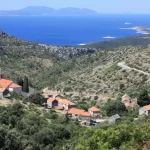April 26, 2020 – Croatia is at a great turning point: continue on with the old ways, or take a new path of reforms.
As 24sata writes on the 25th of April, 2020, in spite of the gravity of the situation in which we’ve come to find ourselves because of the coronavirus pandemic, which has been intensified by the recent Zagreb earthquake, today, Croatia has a chance that is rarely presented: the nation’s dysfunctional, inefficient and expensive institutions, functions and positions that are all too often merely self-serving and nothing more, can be replaced by a more efficient apparatus that will actually be of genuine service to the whole society.
Croatia can begin by streamlining its vast network of municipalities, cities and counties, as well as numerous state institutions and their affiliates – which are equally important – then it can abolish its forced chamber contributions and reduce or completely eliminate several hundred para-fiscal levies; the abolition of that part of the administration alone will contribute to making the Croatian state far more efficient than it is now.
The sheer abundance of people working in the public sector is needless: efficiency is essential to the creation of new value and economic growth. However, Croatia’s public institutions are inefficient. We have a public sector which is twice the size of that of Italy, and much larger than that of Greece, even before its collapse. Maintaining the current situation by borrowing, knowing that this year we’ll face a terrible decline in GDP, in the next few years we’ll enter into the troubled waters of bankruptcy and be forced to sell everything we have left. From Croatian water, to its forests and islands, through to hotels and land, to the airports and even the energy system.
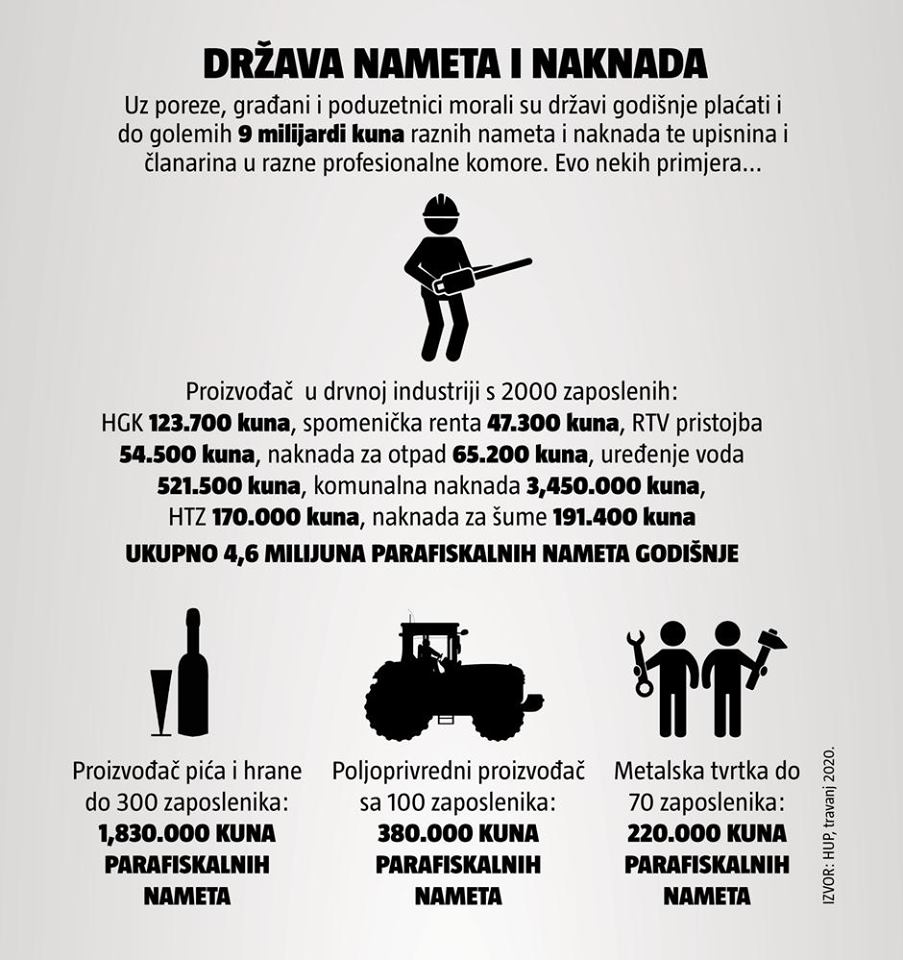
Croatian financial sovereignty will be taken over by the IMF and the European Commission (EC). Whoever doesn’t believe such a story only has to take one look at nearby Greece. Should we go down that route? Foreign owners can, of course, be more rational in managing their businesses because they want to maximise any profits for themselves, their companies, and the country they themselves come from. But, if they can be rational and good masters, why can’t Croats do that for themselves? Showcasing public spending – from municipalities and cities to the very state – that is, what residents’ money is spent on, publicly and accessibly online, is a much stronger guarantee of transparency than the swearing in of even the most ”honest” politicians. Everything that is not actually a state secret should be fully disclosed.
Changes are also the ultimate issue of actual, real patriotism. Today, Croatia is fighting for reforms that will allow the economy to breathe more easily, for the benefit of all of us who live here. Zagreb will rebuild after the earthquake; Croatian agriculture got given a chance, and Croatian crafts and industries will also eventually get that same chance. The recovery of the global and European economy after the coronavirus epidemic leads us to the conclusion that there will be money available; and Croatia needs to spend it on development projects, on production, on irrigation, and on exports. All of the leaders of the leading Croatian parties, as well as the Croatian public, need to make themselves clear about these moves, because this regards the very fate of the country. There are no neutral positions to be taken here. And it won’t be a one year task, these changes will take a very long time to come to fruition.
The crisis we have found ourselves in could be the biggest opportunity for positive change in this country since Croatia gained its independence from Yugoslavia.
During the coronavirus epidemic – and this impression was later confirmed by the Zagreb earthquake – it was clearly shown that Croatia has an abundance of hardworking, dedicated people for whom nothing is too much trouble, and their duties are sacred ones (doctors, firefighters, teachers, nurses, drivers, salesmen, bakers, postmen, pharmacists – people who society would miss terribly if they went on strike). Farmers and OPGs have moved at a rapid pace to a new business model that included digital advertising and home deliveries. Schools and the media have completely switched to a new regime. Students created the world’s currently most sought-after goods, masks and other virus protection equipment, despite their demanding studies.
Unfortunately, in the clear light of day, this situation has proven that for many people, the effect of a great number of people not being allowed to go to work wasn’t even felt. Entire sectors of the economy were left to simply fend for themselves even though businesses had been forced for years to finance expensive institutions – through their extortionate taxes, parafiscal levies, chamber membership fees and so on… so they had to organise themselves – all on their own.
After the earthquake, Zagreb had to be cleaned up by the army. Although the city itself already has an “army” of people sitting in its offices – more specifically 24,000 people – but we’ve mainly only ever actually set eyes on those working for Cistoca and the like – people with regular day jobs.
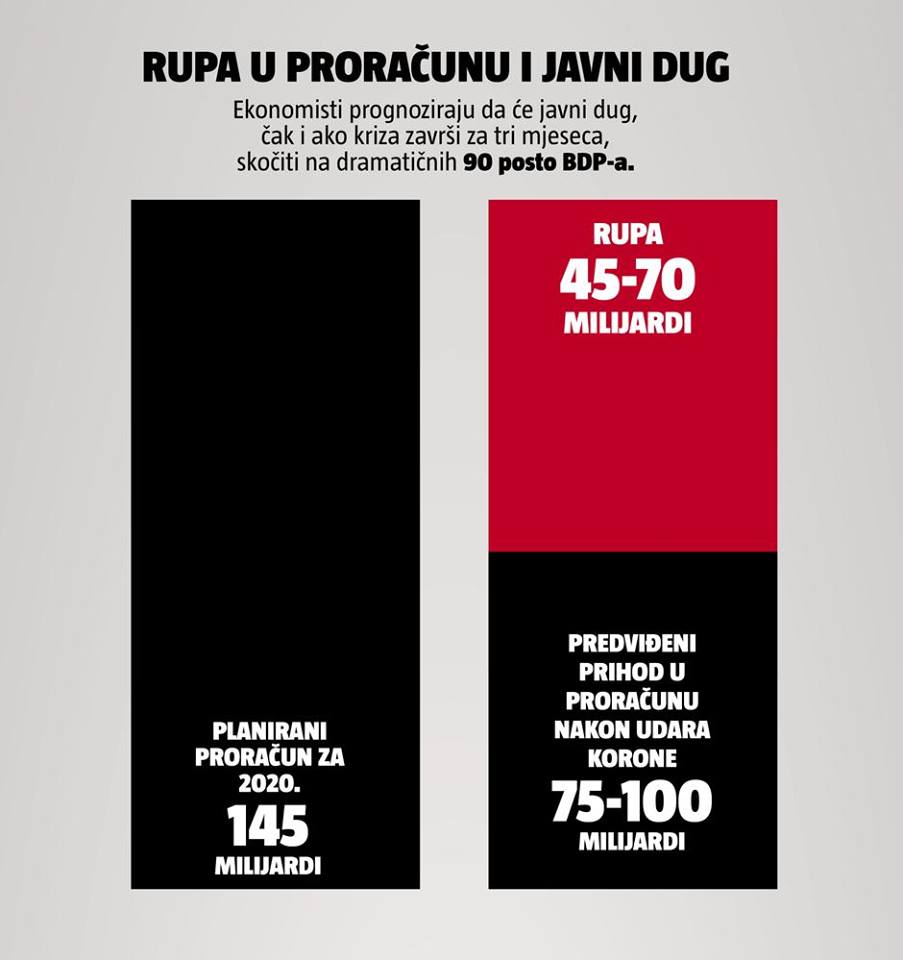
The Croatian Government will certainly find itself in a difficult situation: the budget will be 45-70 billion kuna short due to the massive drop in tourism and the rest of the economy, which makes up half of the state budget. GDP could be completely halved. Of course, due to the obvious interest of those in power and other parties and the upcoming elections, it’s possible for the Croatian state to borrow money and keep the whole public sector intact – both municipalities, counties, cities, chambers, agencies, offices, administrations and public companies. But, by maintaining the existing balance, Croatia will reach an abyss.
The Croatian economy won’t be able to bear the burden of debt repayment if it does so, and in the next few years, it will experience (yet another) economic collapse. That perspective is more than certain. In that case, what the bankers call “collateral” – the guarantees of debt repayment – will suffer. After the Greek collapse of not so long ago, a fifth of the public sector was out of work and a fifth of the private sector also was. All this could have prevented had the Greeks undertaken the much needed reforms on time, but they didn’t. An irresponsible government failed to prevent that now infamous collapse, it merely delayed it and made it more difficult when it did happen.
Can the Croatian Government – not just the current one, but the next one, or the ones after that, afford to take such a risk? It marks the signing of a delayed capitulation, the sale of national interests in installments. The government can, of course, do so if it cares only about the political perspective of the ruling coalition and their party people; it can, if it wants to replace the future of the children with the safety of their staff, because of clientelism. But is the government allowed do that? If Croatia is truly at the government’s heart, it should not and will not. If we don’t take care of the perspective of national development ourselves, we have no right to enjoy the illusion that foreigners will do that for us, or do it even better than us.
The rationalisations that Croatia can – and must – now undertake on its own, with the will of the government, can effectively prevent such a scenario in a timely manner.
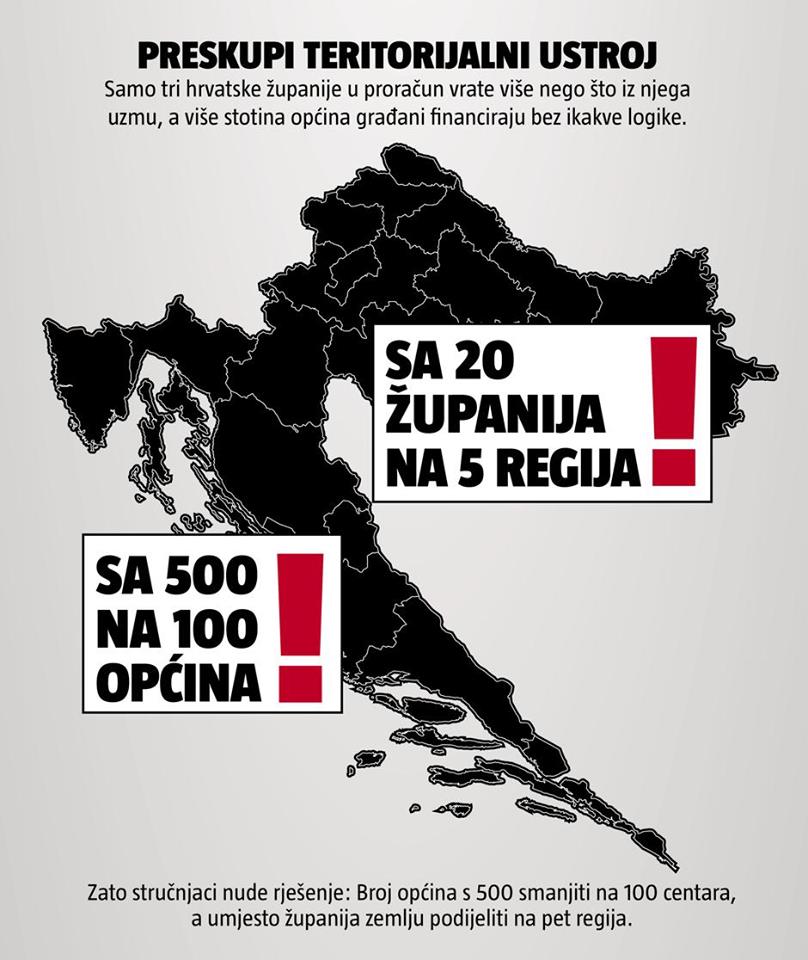
Croatia needs to start rationalising the costly network of 576 local and regional self-government units. Croatia needs to reduce or abolish most para-fiscal levies. Croatia must allow entrepreneurs and business owners, craftsmen, farmers and those in various professions the right to freely pay membership fees to vocational chambers. Croatia needs to streamline the network of agencies and regional offices. Croatia needs to place all of the operations involving the state budget of the central government, and local governments, online. This must be done because the people have become suspicious and are too often convinced that this money will only be misused otherwise.
Transparency is a means of reducing corruption but also a means of preventing excessive spending – we will then all know about everything that goes on in the public sector, there will be no hidden sinecures or meaningless projects.
Transparency is a universal remedy for all of that. We need to digitise every administrative service that can be provided in digital format. We need to incorporate VAT collection upon implementation permanently into law: this will, more than anything else, force state institutions to carry out the jobs they’re actually being paid for, it will raise the level of ”hygiene” in various areas, from business to the judiciary. The catalog of changes Croatia needs is thick and has many, many pages. It only takes courage to bring it to life. And that courage will be rewarded, because the people want it, much like cowardice and hesitation will be punished.
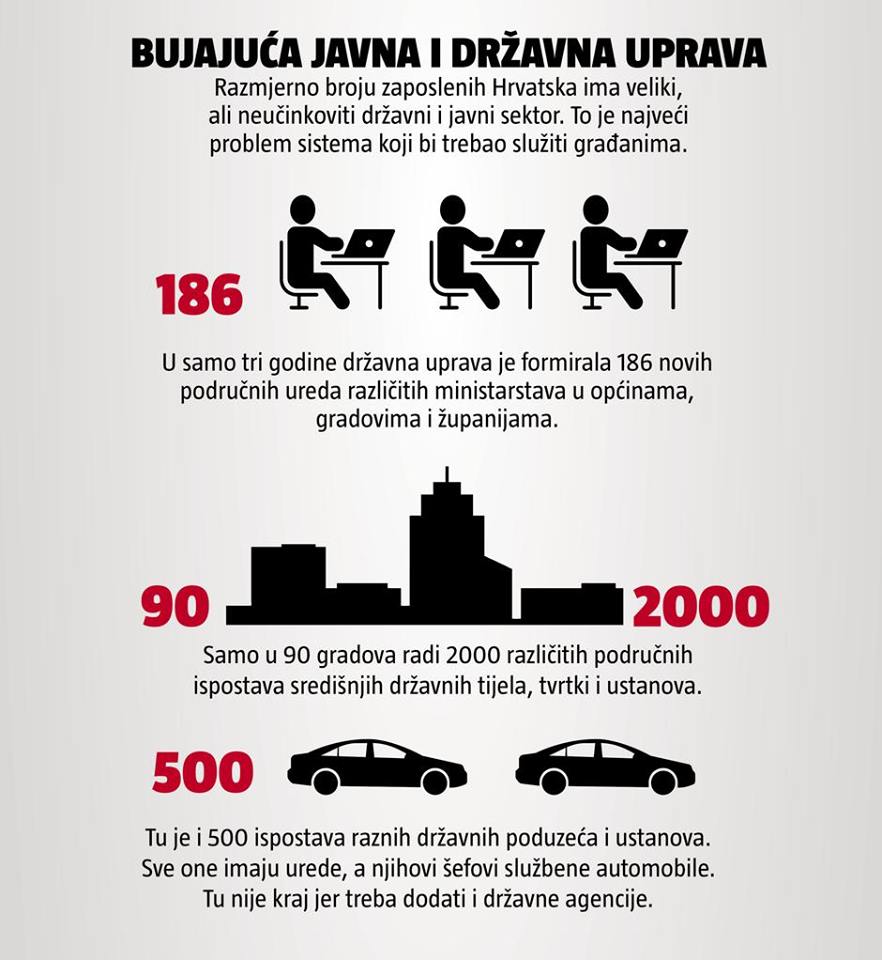
Croatia is a country, a place for five, six, ten million people, who could live in prosperity. The state we’ve had so far – namely, governments – has reduced the number of people living in the country from 4.6 to 4 million. If we reach 80 percent of our current (per capita) income (per capita) compared to the EU, we will put a halt to that emigration, and possibly encourage people to return.
Only an economically strong country is truly sovereign.
The future of all of us depends on which direction the Croatian Government will take. Tens of thousands of people are returning to Croatia because of the recession across Europe. Let’s make sure they stay here when they get off the plane. Let’s give them what they asked for here: an effective state apparatus, compliance with the laws, treaties, rights, a secure prospect of economic progress, reasonable taxes that will feed an efficient state apparatus that will not have entire colonies of well-paid party personnel who don’t actually do anything, and whose futility is clearly put on display as soon as some serious temptation arises. Then, new people will come. Parts of the diaspora will return. Asylum will be sought in Croatia, where currently, even endangered migrants don’t want to stay permanently.
This is a referendum for what kind of Croatia we truly want, and the outcome of that referendum will dictate what our lives will become in the years to come. We need reforms, and we need them now.
For more, follow our politics page.







